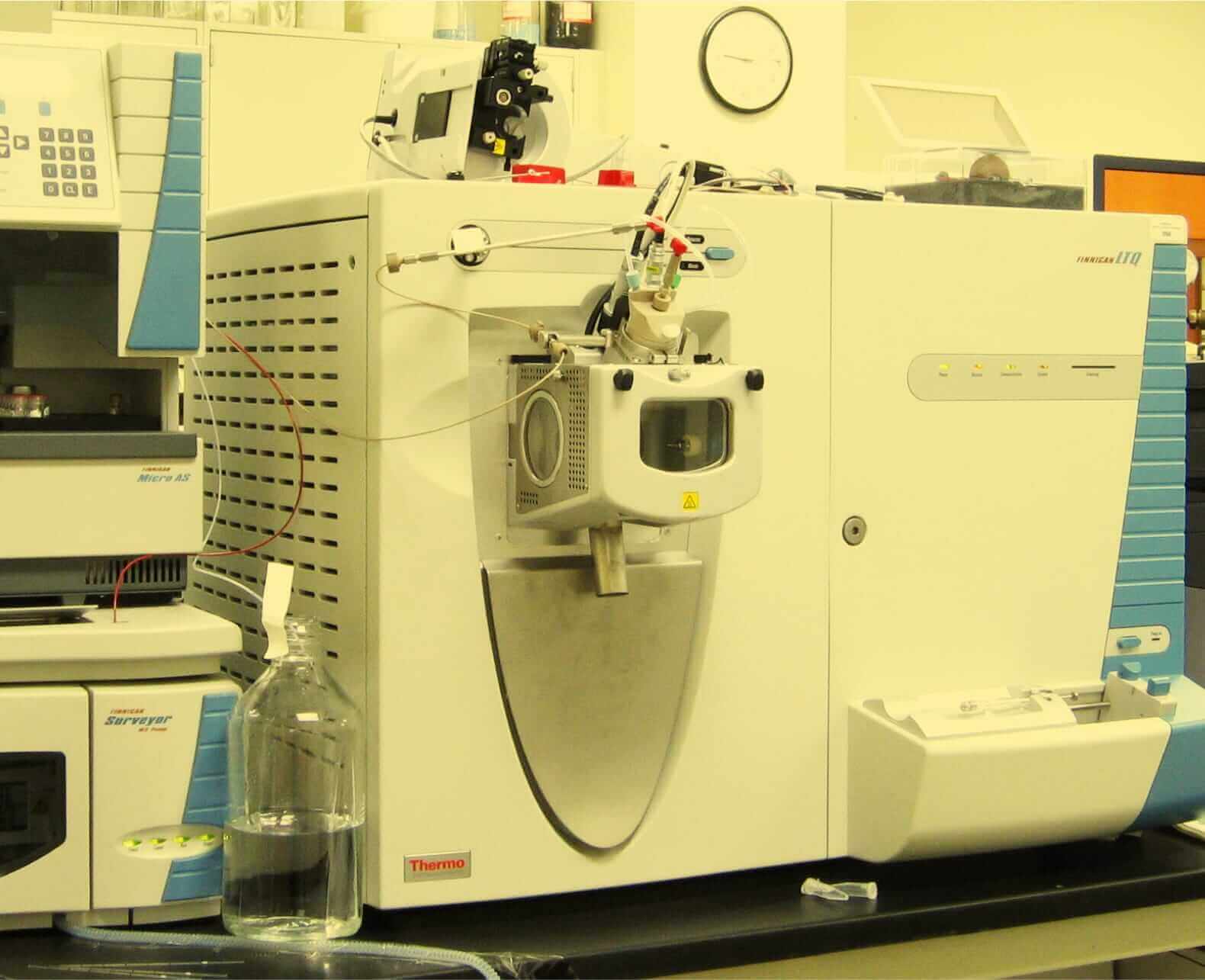
Our bodies are made up of trillions of cells, each containing a copy of our DNA. This DNA is the instruction manual for a cell, and from this instruction manual millions of proteins--the working parts of a cell--are built. These proteins have a variety of different responsibilities in the cell, and just like you and I, a single protein may have different responsibilities from moment-to-moment and throughout its lifetime. Additionally, proteins work together in teams to achieve common goals. Thus proteins form intricate, diverse, and dynamic communities.
Numerous human diseases are the result of improper protein function. Therefore, work at the QBI, in collaboration with the Convergence Zone at the Gladstone Institute is focused on studying how protein function is responsible for human disease. We use the powerful tool of mass spectrometry to study proteins. This approach allows us to monitor thousands of proteins at a time and measure: how protein abundance differs between diseased and healthy cells, how protein function changes over time, protein movement within different parts of the cell, what proteins work together, etc. We have used mass spectrometry to study protein dynamics in diseases such as HIV, Herpes virus, Hepatitis C, and cancer to uncover how improper protein function leads to human disease and how to target such functions to restore human health.
The QBI collaboration, through the Gladstone Institute and the Convergence Zone, is home to a collection of premier mass spectrometers, including: Thermo Orbitrap Fusion Tribrid, Thermo Q-Exactive Plus, Thermo Orbitrap Elite with ETD, Thermo Quantiva Triple Quadrupole, and an LTQ Velos ion trap mass spectrometer. We utilize these instrument to quantitatively characterize the proteome. We specialize in large-scale protein-protein interaction mapping via affinity purification mass spectrometry (AP-MS), with an emphasis on host-pathogen interactions. We have used this AP-MS approach to map how a wide variety of pathogens (HIV, herpes virus, Hepatitis C, etc.) hijack human proteins and ultimately elucidate mechanisms of disease progression. We also routinely perform global characterization and relative quantification of protein abundance, phosphorylation, ubiquitylation, acetylation, kinase activity dynamics, and targeted absolute quantification of protein species and post-translational modifications of interest.